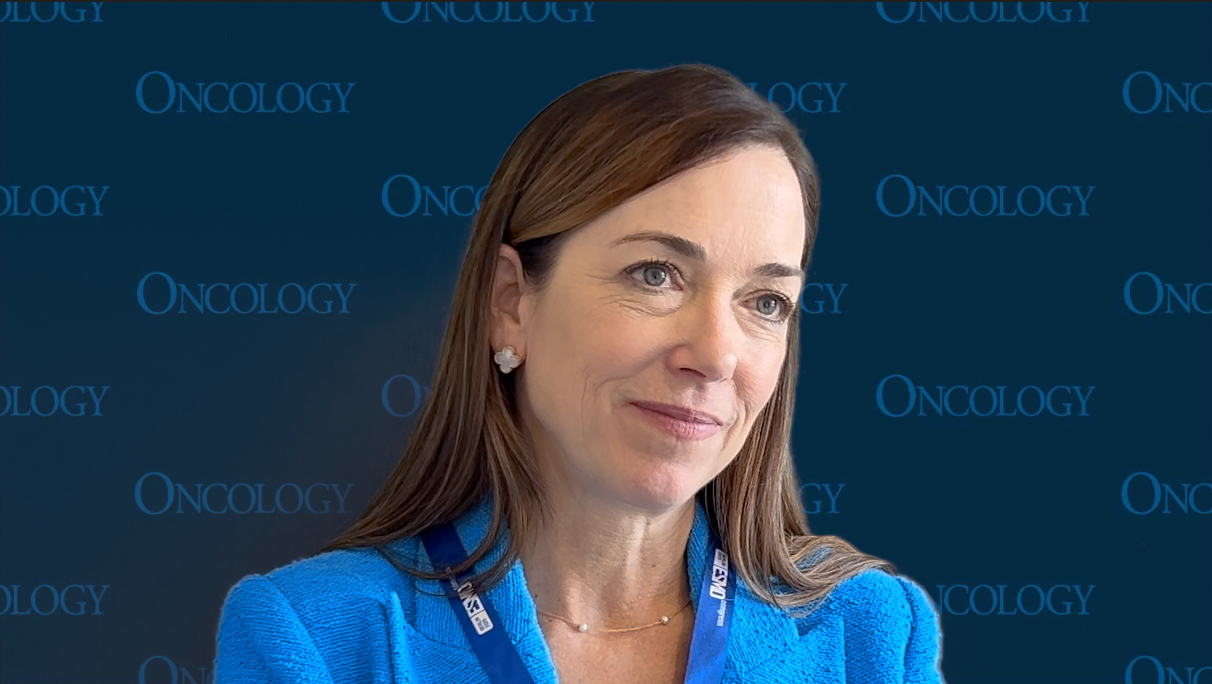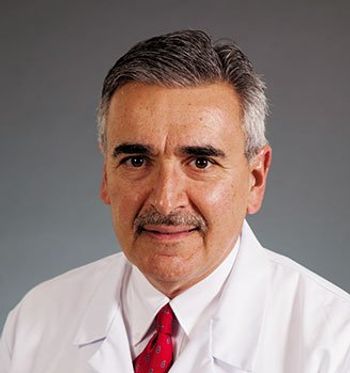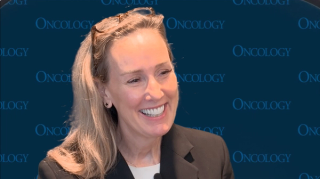
Breast Cancer
Latest News
Latest Videos

Podcasts
CME Content
More News
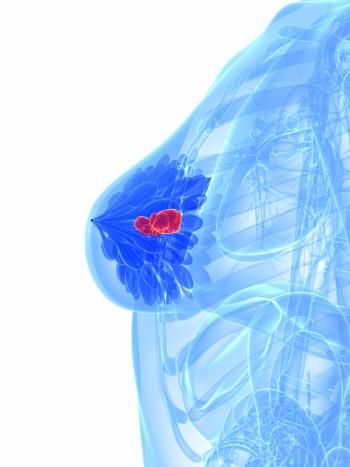
Although the ORR was similar among patients treated with sacituzumab govitecan vs chemotherapy for TNBC, the DOR was higher with sacituzumab govitecan.

Gedatolisib enhanced PFS in advanced breast cancer, showcasing significant benefits when combined with fulvestrant and palbociclib.
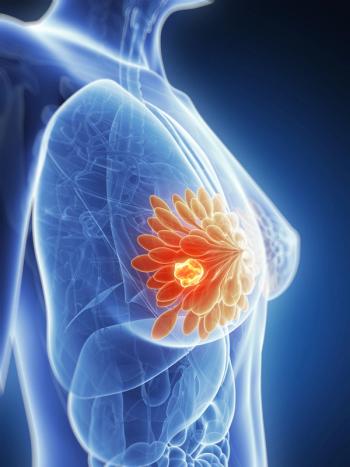
T-DXd followed by THP is more effective and less toxic than dose-dense doxorubicin and cyclophosphamide then THP in this breast cancer population.

T-DXd significantly improved iDFS compared with T-DM1 across various patient subgroups in high-risk, HER2-positive primary breast cancer with residual invasive disease.

Giredestrant plus everolimus doubled the ORR and prolonged the DOR in patients with ER-positive, HER2-negative advanced breast cancer previously treated with a CDK4/6 inhibitor.

Adjuvant ribociclib plus aromatase inhibitors significantly improved invasive disease-free survival in early breast cancer, as shown in the NATALEE trial.
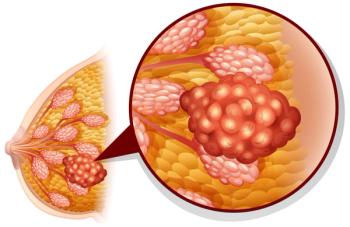
Data from monarchE showed an OS benefit with abemaciclib-based therapy that was consistent across prespecified patient subgroups.
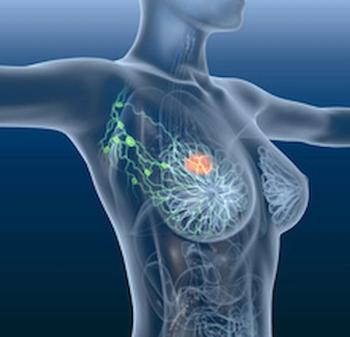
The safety profile of tucatinib plus trastuzumab and pertuzumab was consistent with the established profiles of each individual agent.

Trials slated for presentation at the 2025 ESMO Congress may reveal practice-changing data across different breast and lung cancer populations.

Experts discuss various treatment options for patients with HER2-positive breast cancer, and which would benefit the most based on their characteristics.
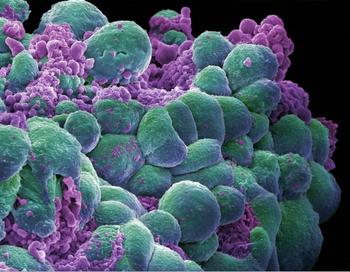
Data from the phase 3 DESTINY-Breast09 trial presented at the 2025 ASCO Annual Meeting formed the basis of the supplemental NDA.

Oncotype DX 21-gene recurrence scores may help select certain patients who are suitable to omit radiotherapy for early-stage breast cancer.

Cryoablation, when combined with adjuvant endocrine therapy, may offer a minimally invasive outpatient strategy in older patients with breast cancer.

The safety profile of dato-DXd was consistent with previous clinical trials assessing the agent in breast cancer.

The decision is based on phase 3 DESTINY-Breast11 trial data, in which the investigational regimen displayed improved pCR vs SOC in this breast cancer population.

Combination therapy of ETX-636 plus fulvestrant is being administered to patients with HR–positive, HER2-negative breast cancer in a phase 1/2 trial.

In the phase 3 EMBER-3 trial, Guardant360 CDx was used to identify patients with ESR1-mutated advanced breast cancer who may benefit from imlunestrant.

The RadComp Consortium trial showed comparable HRQOL between proton and photon therapy for patients with non-metastatic breast cancer.

Planned interim results from the phase 3 DESTINY-Breast05 trial showed no new safety signals with T-DXd in the trial population.

Data from the phase 3 EMBER-3 trial support the approval of imlunestrant in this breast cancer population.

Results from the phase 3 DESTINY-Breast09 trial will support the FDA’s decision on whether to approve T-DXd plus pertuzumab in frontline metastatic breast cancer.
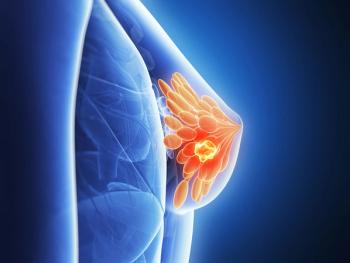
Read an expert-led article on the latest advancements in TROP2-targeted antibody-drug conjugates for treating triple-negative breast cancer and improving patient outcomes.

Data from the phase 3 evERA trial show a trend toward improved overall survival with giredestrant plus everolimus in this breast cancer population.

THERMAC trial results revealed that the ProSense® cryoablation system showed no complications, and the highest complete ablation rate in breast cancer.

Up-front risk stratification for additional cardiovascular testing may help mitigate cardiovascular toxicities in breast cancer treatment.




